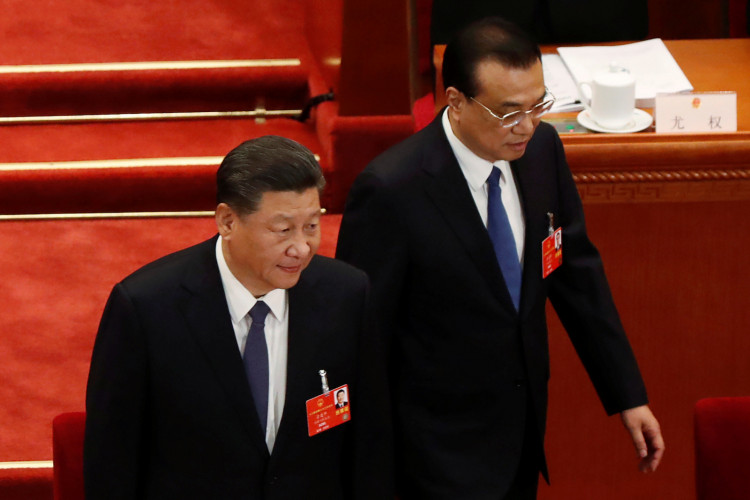On Tuesday, Sept. 27, Chinese President Xi Jinping made an appearance on official television while visiting a Communist Party exhibition.
This was his first public appearance since his return from the Shanghai Cooperation Organization conference in Samarkand on Sept.16. His absence from public activities leading up to the important governing party Congress next month fueled rumors about his whereabouts.
Premier Li Keqiang and other prominent leaders accompanied Xi, who is also the leader of the country's two main armed forces-the Communist Party and the People's Liberation Army-as he toured some of the exhibits and made remarks about China's economic development in recent years.
Despite the stability of the authoritarian surveillance state that constantly cracks down on any indication of dissent, China's opaque system regularly gives rise to rumors of political infighting or attempted coups.
Observers assert that Jinping's absence from the public may have been caused by the requirement for a seven-day quarantine at a specific location. According to the official recommendations for those returning from overseas under China's dynamic Zero Covid policy, the quarantine is followed by a three-day homestay.
Since the constitution's term restrictions were lifted, Xi is now free to rule indefinitely if he so chooses. He is widely regarded as China's most powerful leader in decades, has no known active rivals, and has no known political opponents.
Chinese politicians frequently disappear for days or even weeks, for instance, to attend the informal political gatherings that take place every summer at the coastal resort of Beidaihe. However, the absence of Xi came only a few weeks before a significant party conference that was to be conducted once every five years, which fed the rumor mill.
At the congress that starts on Oct. 16, Xi is anticipated to be elected to a third five-year term as party head, breaking with the former custom that limited leaders to two terms. Kerry Brown, a specialist on Chinese politics, expressed his extreme skepticism about finding any further meaning in Xi's brief absence.
"I guess if there was deep dissatisfaction with Xi's leadership in the elite ... We would have seen at least a bit of evidence," Brown, professor of Chinese Studies and director of the Lau China Institute at King's College London said. "And I don't think we've seen much evidence of that."
According to Brown, the party is naturally risk averse, making it very difficult for anyone or any group to carry out such a bold step against a structure that has been formed almost entirely around Xi.





